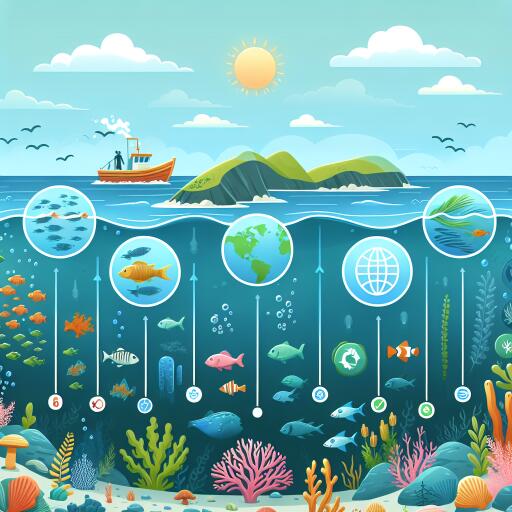
8 Ways That Stopping Overfishing Will Promote Biodiversity and Help Address Climate Change
In the context of escalating climate threats and the ongoing discourse on environmental conservation, one crucial aspect, often overlooked, is the significant role that ending overfishing plays in combating climate change. Groundbreaking research emphasizes that halting overfishing is not only vital for the sustainability of marine ecosystems but also acts as a powerful measure against climate change, benefiting both the resilience of ocean life and the livelihoods dependent on it.
1. A Dual Benefit: Ending overfishing marks a critical stride in climate action efforts. It boosts the resilience of marine ecosystems against climate variations and diminishes related carbon emissions. This initiative serves as both an ecological necessity and a climate strategy.
2. Supporting Small-Scale Fisheries: Overfishing, exacerbated by large, subsidized fleets, puts immense pressure on small-scale fisheries. This not only depletes marine resources but also increases carbon emissions, further affecting vulnerable communities, including women. The resilience of shellfish fisheries to climate stressors further highlights the need for adaptable, localized solutions.
3. Learning from Success: Instances such as the recovery of European hake stocks illustrate how replenishing fish stocks can lead to a decrease in emissions intensity from fishing activities. These success stories are invaluable lessons in sustainable fisheries management.
4. Prioritizing Ecosystems in Management: Ecosystem-based fisheries management transforms the approach by prioritizing ecosystem health over maximal exploitation, thereby promoting sustainable catches and aiding in carbon sequestration. The implementation of such management strategies, like those seen in the western Baltic Sea, underscore its potential for broader application.
5. Tackling Pollution: Oceanic heavy metal pollution aggravates the adverse effects of warming and overfishing, making comprehensive regulatory solutions essential. These regulations need to focus on sustaining ecosystems and ensure the longevity of marine biodiversity.
6. Combatting Climate and Biodiversity Threats: Overfishing and climate change create a vicious cycle, diminishing fish populations through habitat alteration and increased disease propagation. This necessitates a strategic approach to fisheries management that considers the broader ecological impact.
7. International Leadership: Effective international fisheries management is imperative for enhancing biodiversity and maintaining the ocean’s role in carbon sequestration. The full ratification and implementation of treaties, like the UN’s Biodiversity of Areas Beyond National Jurisdiction Treaty, with provisions for marine protected areas, are crucial steps forward.
8. Maximizing Carbon Sequestration: Adopting fisheries management practices focused on maximizing carbon sequestration can significantly aid climate goals. Redirecting a portion of annual fishing quotas towards maintaining marine populations’ carbon sequestration capabilities embodies a shift towards acknowledging and harnessing the broader environmental services fish stocks provide.
The compelling arguments laid out through this research highlight the urgency of halting overfishing not just as an ecological necessity but as a fundamental aspect of climate action. Acknowledging fisheries as potential players in either exacerbating or mitigating climate change underpins the importance of ecosystem-based management approaches. As the world advances toward future global climate conferences, recognizing and supporting sustainable fisheries management emerges as a crucial pillar for resilient and sustainable environmental policies.





Leave a Reply